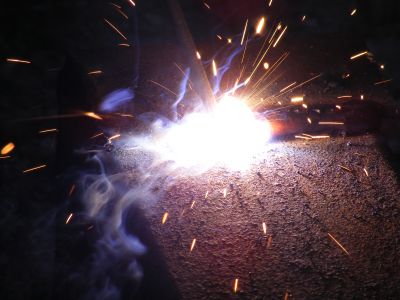
Raytheon has been fined after two workers suffered 'horrific' injuries in an accident at a Glenrothes plant.
The global defence body had Steven Delargey and Russell Brand - both employees of Fife firm C&F Electrical Services - carry out work that was "not essential".
They tried to replace capacitors while a high voltage electrical system was live because Raytheon didn't want to interrupt production at the factory.
Prosecutors said the firm wanted to "cut costs at the expense of safety".
The pair were severely burned on the face, neck and arms after one of the capacitors they were removing came into contact with a pair of live "busbars" - causing an electrical flashover.
Kirkcaldy Sheriff Court heard Mr Brand and Mr Delargey both had to be admitted to intensive care units for four days.
Mr Delargey suffered 10 percent full thickness burns and was off work for almost a year - and has been left with permanent scarring to his neck and face.
As a result of the skin damage to his face he has been told by medics to apply factor 50 sun cream any time he goes outdoors, regardless of the weather.
Meanwhile, Mr Brand has been diagnosed with post traumatic stress disorder and has also been left with permanent scars.
Raytheon - a worldwide defence manufacturing giant - build, among other items, laser-guidance systems for missiles at the Fife factory.
Kirkcaldy Sheriff Court heard Raytheon - which posted profits of over £65 million in the UK last year - employs 560 people at the Glenrothes plant.
The men were to remove large capacitors weighing 19kg each from a tight space, with live busbars sitting just 12cm below the bottom of the lower capacitor.
The capacitors were isolated from the electrical supply, but the busbars remained live.
The top capacitor was removed successfully - but the pair struggled to remove the second as the space was so restricted and so close to the live busbars.
A piece of chipboard was placed on to racking beneath the capacitor to try to guard against it being dropped on to the busbars - but it had a 9.5cm gap on either side.
The court heard that when the capacitor fell a short circuit was created with electricity arcing between the two live busbars - causing an explosion of bright light and vaporising the busbars due to the high temperatures involved.
A blaze started as a result, with fire crews racing to the scene along with ambulances.
A Health and Safety Executive probe found that the work should not have gone ahead with the distribution board live and that the job was "not reasonable".
They found there was "no urgency" for the capacitors to be replaeced as they had been switched off for some time - and that the only effect of delaying the work would have been increased energy bills and issues meeting Carbon Trust emissions standards.
The court was told that "cost cutting at the expense of safety" was an "aggravating factor" in the case and that the risks were "entirely foreseeable".
Raytheon, whose HQ is in Elizabeth Way, Harlow, Essex, and C&F Electrical Services, based in Poplar Road, Glenrothes, both pleaded guilty to two charges on indictment under the Electricity at Work Regulations 1989.
Sheriff James Williamson imposed a fine of £24,000 on Raytheon, and £20,000 on C&F Electrical Services Ltd.
Both were ordered to pay up within 28 days.

 10°C
10°C
 10°C
10°C
 9°C
9°C